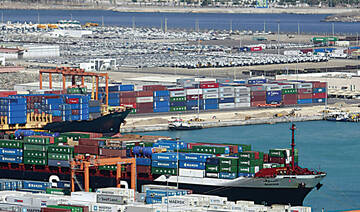RIYADH: Saudi Arabia’s General Authority of Civil Aviation has inked a deal with German electric vertical take-off and landing vehicle manufacturer Lilium, propelling the Kingdom’s advanced air mobility roadmap.
The memorandum of understanding, signed between the authority and the aerospace firm at the Farnborough International Airshow, supports GACA’s development of AAM solutions in the Kingdom, according to a statement.
This comes as the authority collaborates with stakeholders and companies globally to create a thorough national plan for AAM.
This strategy encompasses the essential elements and regulatory framework needed to ensure AAM technologies’ secure and effective integration. During the implementation phase, the focus will be on incorporating eVTOL operations with existing aviation systems and other transportation modes.
The newly signed MoU falls in line with the authority’s engagement with global companies to bring new aviation mobility solutions to Saudi Arabia.
It also aligns well with GACA’s continuous efforts across the industry to ensure the Kingdom has regulations that encourage growth, ensure the highest levels of safety, and put passengers first.
“This agreement reflects GACA’s commitment to advancing innovative and sustainable air mobility solutions for Saudi Arabia in support of Vision 2030,” GACA President Abdulaziz Al-Duailej said.
“By working with global advanced air mobility companies, we aim to establish a robust regulatory framework that ensures the safe and efficient operation of eVTOL aircraft,” Al-Duailej added.
From Lilium’s side, CEO Klaus Roewe said: “Our goal is to jointly advance regulatory and practical steps for suitable framework conditions for electric aviation and our customers in Saudi Arabia.”
He added: “Today’s agreement delivers on one of the main ingredients required to successfully launch eVTOL operations — a definitive path to all relevant regulatory cornerstones.”
The announcement builds on the momentum of recent successful air taxi trials in support of GACA’s AAM roadmap development, the statement added.
Last week, Lilium confirmed that it is making its debut in Saudi Arabia with a groundbreaking agreement to supply up to 100 eVTOL vehicles to Saudia, the Kingdom’s first national carrier.
The formalization of this agreement came after a framework deal was initially arranged in late 2022, making Saudia the first airline in the region to invest in sustainable air mobility.















